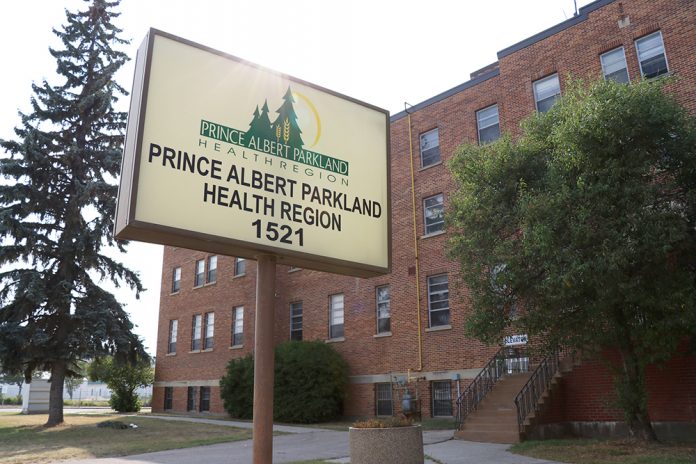A new program announced as a part of Wednesday’s provincial budget could improve speed and access to addictions treatment in Prince Albert.
As part of the province’s record-breaking announcement of over $400 million province-wide for mental health and addictions, $1.8 million was set aside for the creation of three new Rapid Access to Addiction Medicine (RAAM) clinics, one each in Saskatoon, Regina and Prince Albert.
Scott Livingstone, CEO of the Saskatchewan Health Authority, characterized the announcement as a pleasant surprise.
“They are one piece that will help us have people access addictions treatment earlier,” Livingstone said. ‘They are just one piece of a spectrum of different components of care.”
While the model is new to Saskatchewan, it has been used successfully in other provinces, Livingstone continued. He added that funding has been provided to the SHA to define what the Prince Albert team looks like and recruit staff this year.
“(RAAM) allows patients who have made a decision to seek treatment for their addiction to access therapy quicker,” he said.
“We create multidisciplinary teams that are in place … to make sure we can bring (patients) into treatment programs.”
While it does serve as another means to connect patients to other resources, Livingstone said the RAAM teams also serve another purpose.
‘it is set up in a way to immediately get care because we know that when people have delays to get access to care, they continue to have a cycle of addictive behaviour.”
An example would be getting patients on methadone therapy while working to connect them to the rest of the health care system.
While that was the only mental health initiative that is definitely coming to Prince Albert, the city could also benefit from other increases in health and mental health funding.
The provincial government set aside funding for about 128 beds throughout the province to help transition people to and from detox and back to the community.
The SHA will be working with community-based organizations. Those organizations will apply for the beds through a request for proposal tender process, with winning bids awarded funding to operate the mental health and addictions beds.
“Throughout the province, and particularly in our larger centres where we see those pressures — P.A., Regina and Saskatoon — there is a need for community-based beds that help support treatment of mental health and addictions patients,” Livingstone said.
Those beds, he added, will help keep patients out of acute care facilities such as hospitals if they don’t need to be hospitalized.
The province also promised to fund more doctors and specialists. Again, Livingstone couldn’t say for sure where those physicians will end up, but he did say the SHA will take a province-wide approach to assess different communities’ needs and determine where best to place new medical staff. The same is true with the allocation of increased operating funding.
“Not all of the money is being spent in Saskatoon or Regina,” he said.
‘The money will be spread across SHA priorities, which we will define in upcoming weeks.”
Capital funding for hospitals a ‘very, very positive sign’
The province’s commitment to spend $2.5 million on each of Prince Albert and Weyburn hospital projects was praised by Livingstone as a sign that development is just around the corner.
“We’ve already spent a large amount of money on functional planning for P.A. and Weyburn,” he said.
“This is the next step to providing resources to both communities and our teams … which will take that design and build a business case we will submit to SaskBuilds for approval of the build for both facilities.”
Whether construction on either project will begin is a government decision, he said, not an SHA one.
Livingstone said that both projects have already had significant funding allocated to them for design work. While Prince Albert’s hospital was determined by the government to be 100 per cent provincially funded, in Weyburn, the community has been tasked with fundraising 20 per cent of the costs.
He denied that the split funding indicated that one project is of higher priority than the other.
‘This is a good sign for both facilities,” he said. “I don’t think either one is being favoured over the other. In our opinion, we would like to see both go forward as quickly as possible.”
Livingstone wouldn’t say when he expects construction to begin but added that the two projects are the only hospital redevelopments on their radar, which makes the commitment of pre-development funding a “very, very positive sign.
“I couldn’t say that it’s a lock for next year, but I will say that it’s very positive,” he said.
“We view this as a … positive sign in the next step for getting (the Victoria Hospital project redevelopment) closer to reality.”


